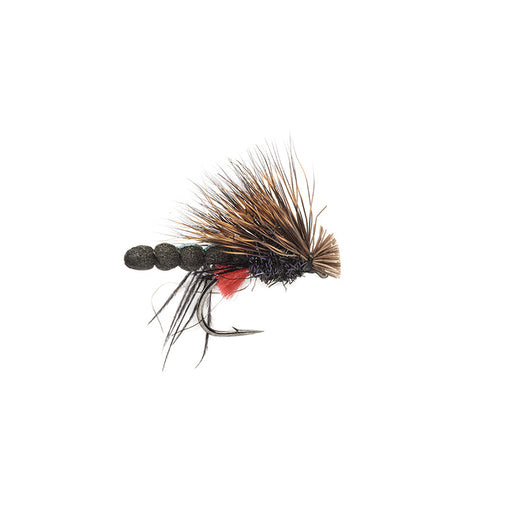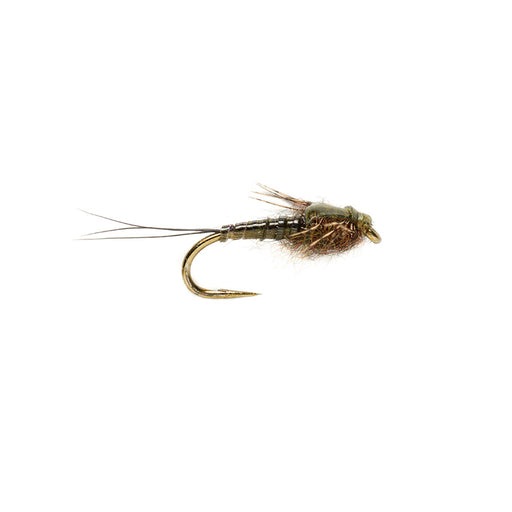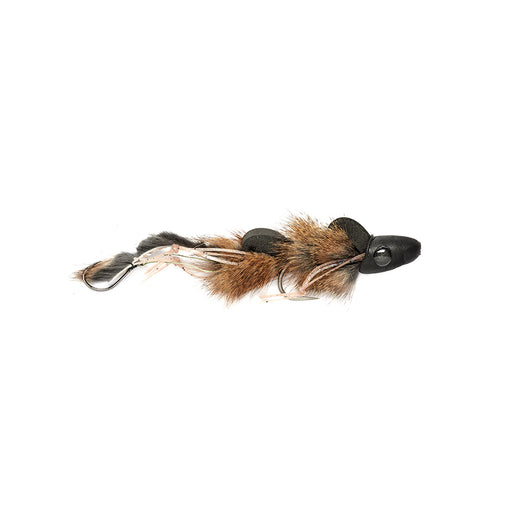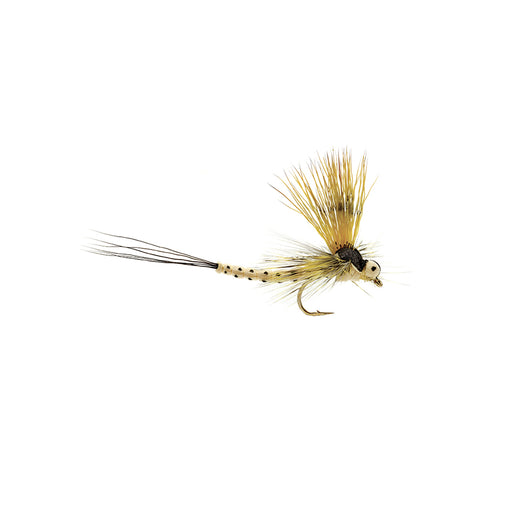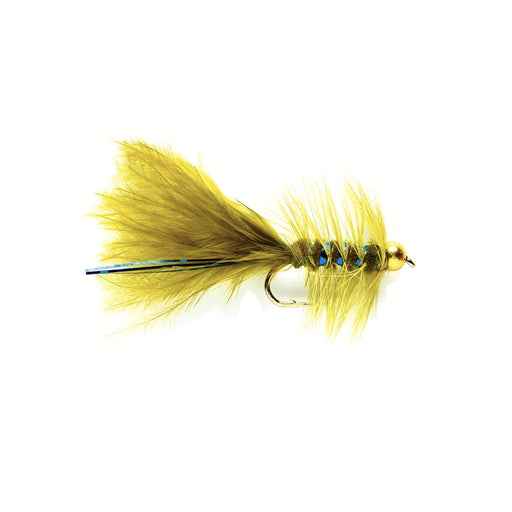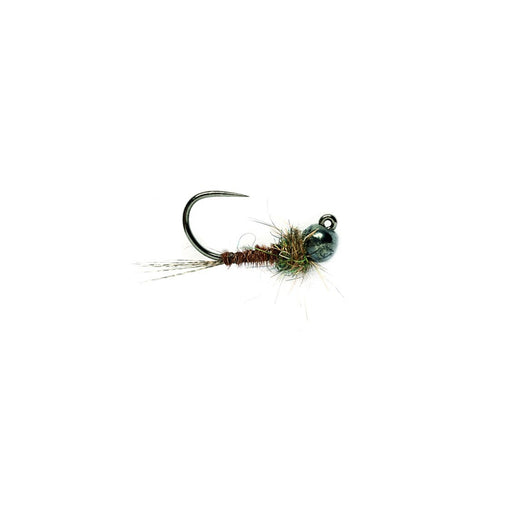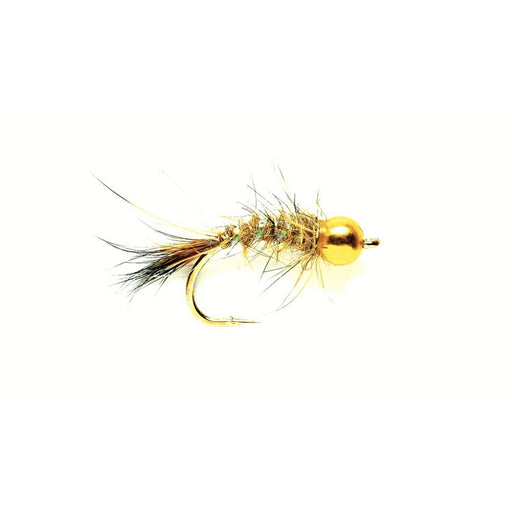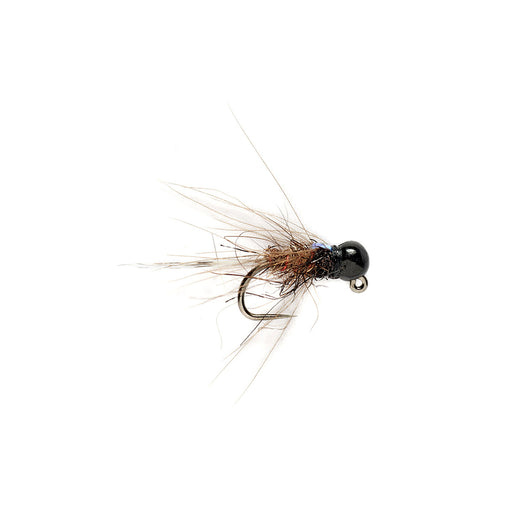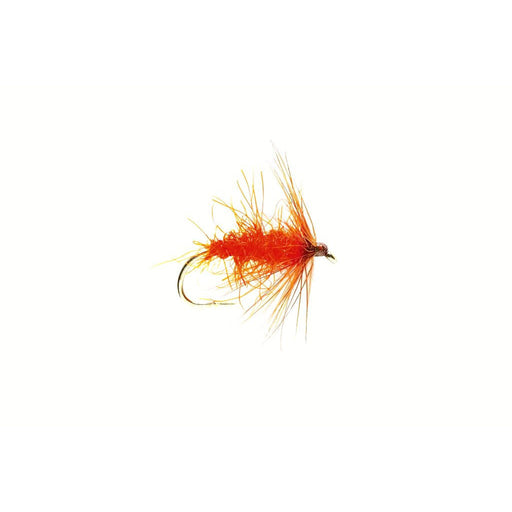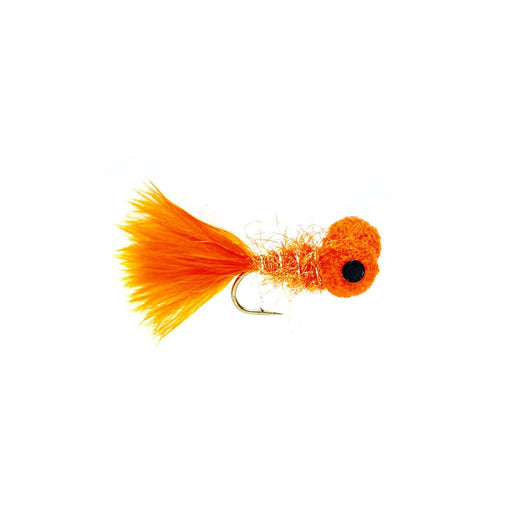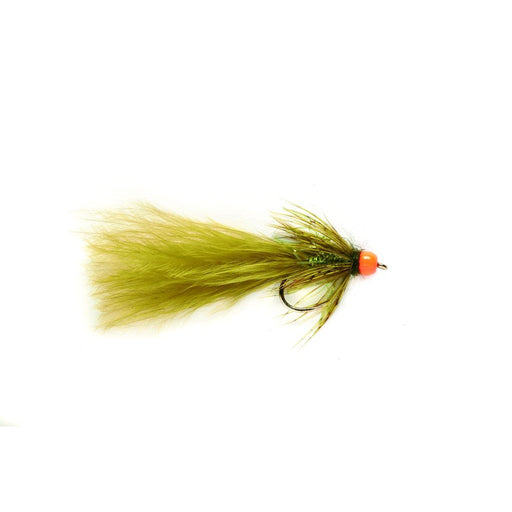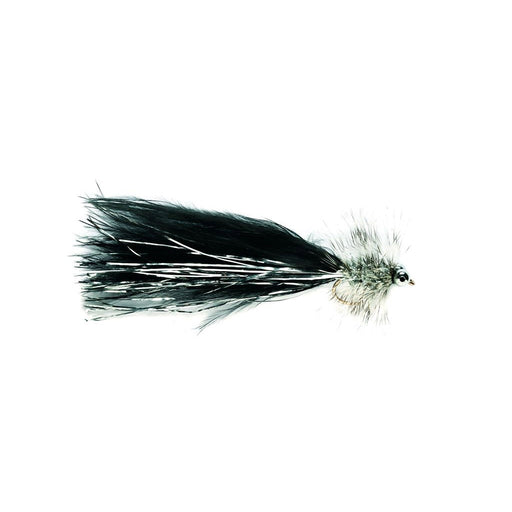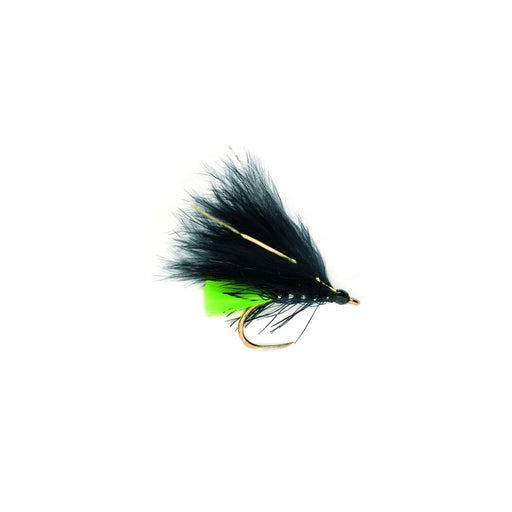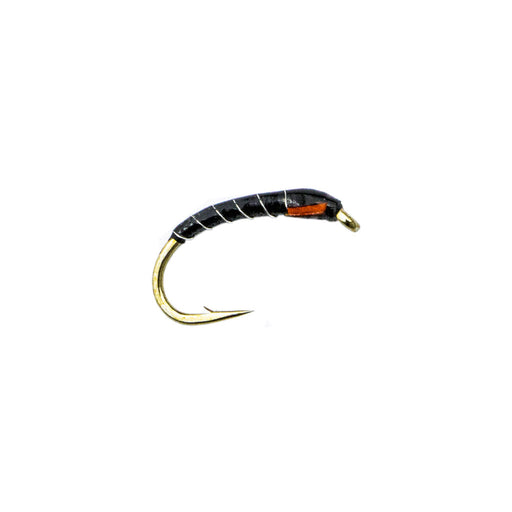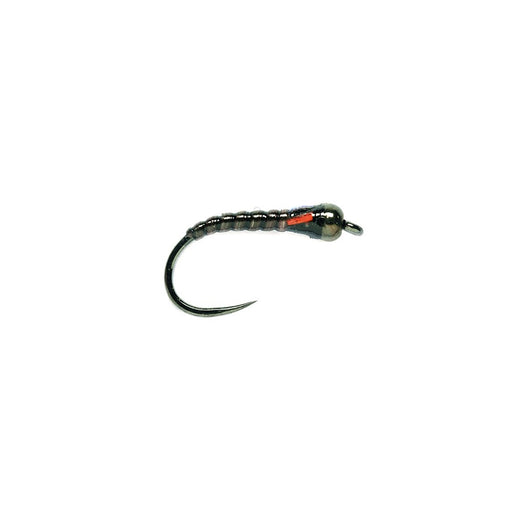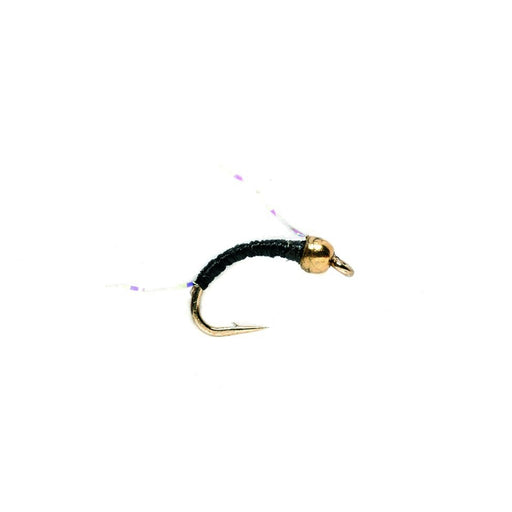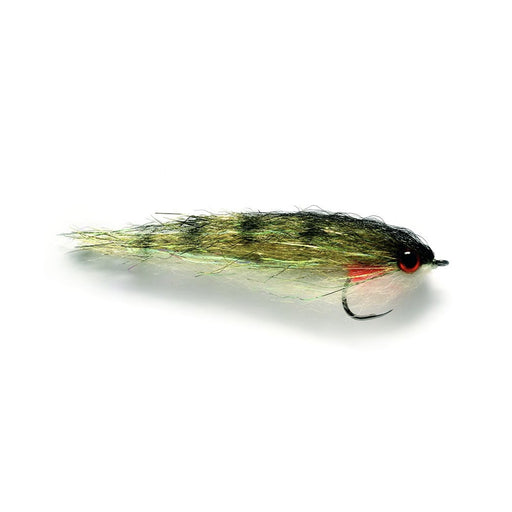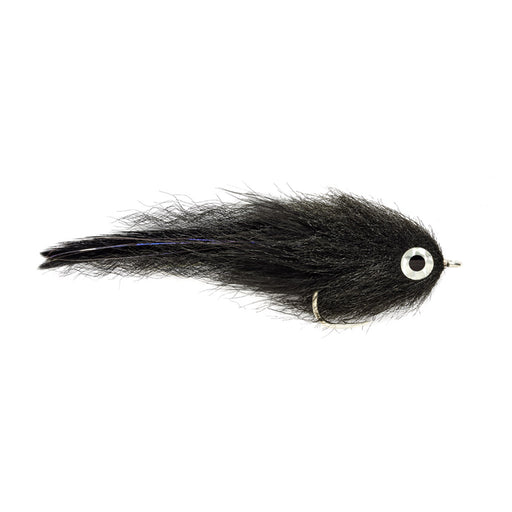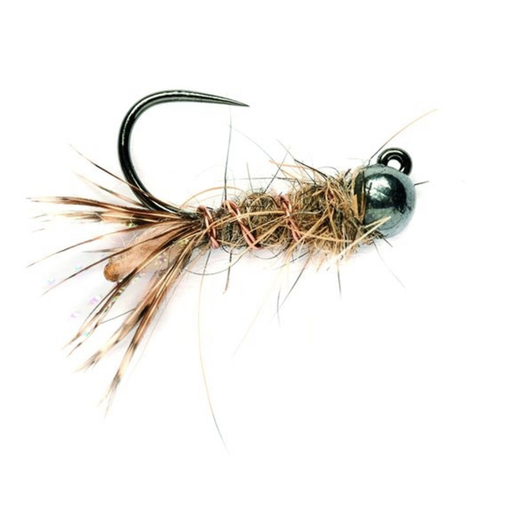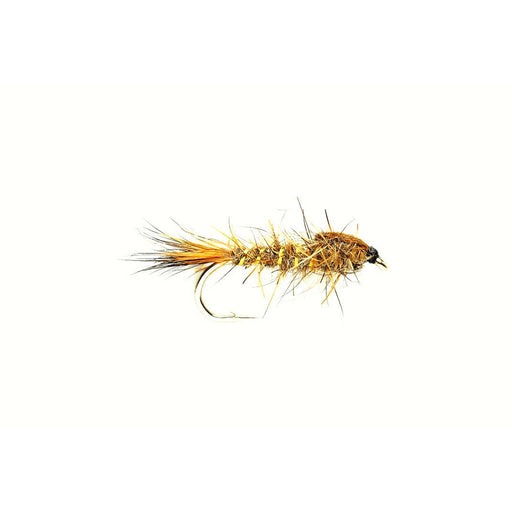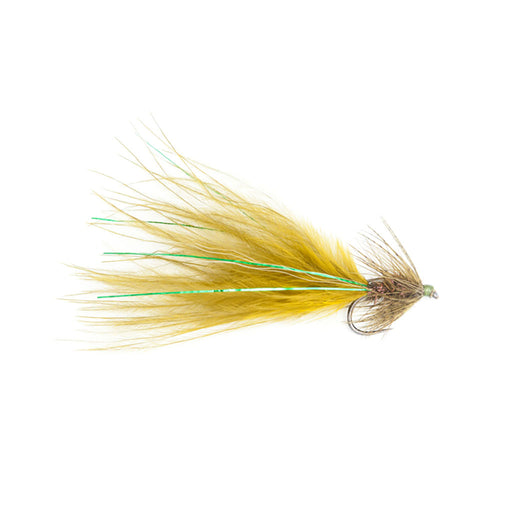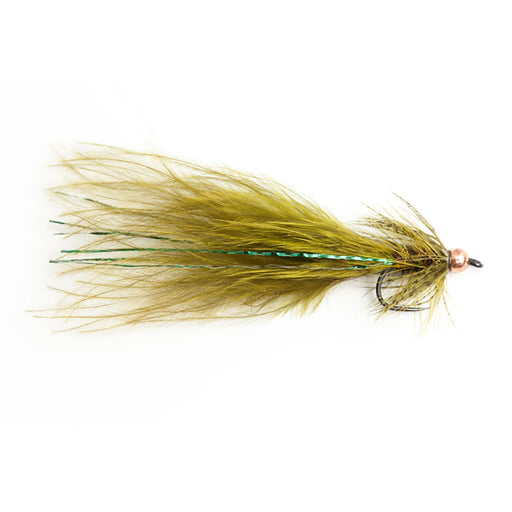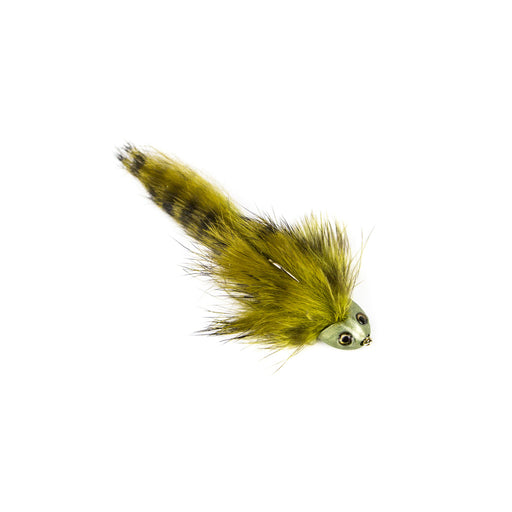
Fly Fishing Gear | Fly Fishing Flies | All
Your fly should be the only thing the fish sees; make it the right one.
At Tom's Outdoors, we boast a huge collection of fly fishing flies from Fulling Mill, MFC, RIO and Catagory 3 Fly Company - We handpick flies that are suitable for use in our local area, around Australia and across the ditch (or dutch as our Kiwi cousins would say).
Click here to read more...
WHAT TYPES OF FLIES ARE BEST FOR TROUT?
There are three main types of artificial flies in freshwater trout fishing, Dry flies, Nymphs and Wet flies (aka streamers) that anglers use to represent most of what trout eat.
- Dry flies: Designed to stay ‘dry’ and float on the water's surface, either representing an insect that has ‘hatched’ out of the water, like a Mayfly-Dun or a Caddis, or representing an insect that has fallen onto the water (terrestrial insects) like a Grasshopper. These flies are generally fished drifted along naturally in the current.
- Nymphs: Represent the aquatic juvenile phase of a water-born flying insect, like a Mayfly-Nymph, Caddis-Grub, or Stonefly-Nymph, and are fished throughout the water column from just under the surface film to the bottom, sinking with the aid of built-in or external weight. Nymphs are generally drifted naturally with the current, as well as being given some small movement underwater from time to time.
- Wet flies (or Streamers): Fished below the water's surface, these flies often imitate larger invertebrates like crayfish (yabbies), mud-eye, and damselfly, as well as larger vertebrates like frogs, baitfish, and even other small trout. They are generally fished quite aggressively through the current to imitate the darting fleeing nature of these prey items.
HOW TO CHOOSE A FLY
The three main things to consider when looking at selecting any fly are Profile, Movement, and Colour, in that order.
- The profile of the fly is one of the first things that a fish sees from a distance and will let them know if they are looking at viable prey; you want to match the size and shape of the food item you are imitating.
- Movement is the next thing that triggers a fish into eating your fly, whether it is slight movement that is ‘built into’ the fly like a soft hackle feather or how the fly reacts when moved through the water, such as the long tail made of marabou on a woolly-bugger.
- Finally, colour is a consideration, but not as important as most people would assume. Fish see colour differently from people and although it can be useful to have a fly in a range of colours, you can generally stick with bright, dark, or natural colours.
A note on ‘Ultra-Violet Hot-Spots’: one important consideration is does your fly have ultra-violet materials built into it? This is often an excellent extra trigger that results in getting fish to eat the flies as many fish species hunt in the Ultraviolet spectrum.
ATTRACTOR-PATTERNS VS IMITATIVE-PATTERNS.
Attractor patterns are designed to suggest life and movement without trying to match exactly one type of food or prey item. Imitative patterns are tied to try and look as much like the real thing as possible. They are both important styles to keep in mind when selecting effective flies for any situation. In general, the longer a fish will get to look at your flies, i.e. fishing very slowly on a lake or sand flat in clear water, the more imitative a fly should be. The less time a fish will see you fly, i.e. fishing a fast-flowing river or stripping a fly quickly through the water column the more of a general attractor a fly can be, the best flies generally have a mix of both!
Here at Tom’s we also stock all the necessary flies for targeting Australian Native Freshwater and Saltwater species. We have flies for Murray-Cod, Australian-Bass, Golden Perch, Flathead, Australian Salmon, Bream, Golden trevally, GT’s, Tuskies, Permit, and pretty-well any other species you’d care to throw a fly at, even carp... (unfortunately) - Native Freshwater and Saltwater patterns often fall into Surface (Floating) or Subsurface (Sinking) categories, most of which are fished actively to imitate the movement of the prey they represent. A typical surface fly would be a popper, which can imitate a frog or mouse ‘blooping’ across the surface, or even a wounded baitfish attempting to escape from a rocky ledge. Subsurface flies can range from patterns that represent baitfish all the way through to crayfish, crabs, shrimp and even drifting seaweed.
NEED HELP CHOOSING FLIES? CONTACT US TODAY
Simply get in touch with our friendly sales team – they’re always up for a chat. You can contact us by calling our Tumut store on (02) 6947 4062 or by email.
Fulling Mill McPhail R/Tag H/Hopper
Fulling MillTake a Red-Tag and a Hopper, Smash them Together, Brilliant. Rather than being a Frankenstein of a fly, this is the perfect combination of a beetle...
View full detailsFulling Mill OE Double Bead Beatis
Fulling MillBeatis are back! Then again they never really went anywhere... An ultra-slim profile, super lifelike tail and leg arrangement, this fly is a clear/...
View full detailsFulling Mill Mousey McMouseface
Fulling MillThe Mouse that's in your face! The Mousey McMouse face is THE articulated mouse pattern to have in your box. Swing it at night on a switch-rod, str...
View full detailsFulling Mill Mohican Mayfly
Fulling MillA fantastic Kosciuszko dun pattern Big Mayflys, Big results. The Mohican will slay those big Kozzie Dun feeders when the big bugs pop.
Fulling Mill Dad's Demoiselle
Fulling MillTrout love a Damsel in Distress An Excellent crippled/egg laying Damsel pattern with a dis-jointed hanging thorax that will stand out in a swarm o...
View full detailsFulling Mill Gold Nugget Blue Damsel
Fulling MillA fantastic bright Damsel pattern Nicely weighted, olive with blue tinsel highlights, this is sure to catch a Damsel feeders attention.
Fulling Mill Natural P/Tail Jig B/L
Fulling MillA standout-natural Pheasant tail Jig This is a stellar all-rounder of a jig pattern. Natural with just the slightest hint of flash around the thora...
View full detailsFulling Mill Hare's Ear Natural (Gold Nugget)
Fulling MillThe Gold Nugget at the end of the Rainbow Although it's much more likely to be found in a Rainbow's mouth than at the end of an actual Rainbow. A g...
View full detailsFulling Mill KJ Dirty Water Jig
Fulling MillGet Down, Get Dirty A great Jig fly for dirty water; a little bit of CdC, a touch of flash and all class from Kieron Jenkins.
Fulling Mill Carrot Fly Orange
Fulling MillEasy pickings for fish feeding on adult or emerging bugs that have become trapped in and on the surface film
Fulling Mill Booby Fly Orange
Fulling MillArguably one of the most effective flies of modern lake fishing. Can be used all year round on any density of fly-line , from a floater to a fast ...
View full detailsFulling Mill Hot Head Straggle Damsel Barbless
Fulling MillHot head point flies are freakishly effective! Fish it in a team or on it's own as a searching pattern in rivers. The motion and fluidity of this ...
View full detailsFulling Mill Humungus Barbless
Fulling MillA scaled-down barbless Mini Streamer, ideal as a yabbie, baitfish or attractor pattern. Fished in conjunction with standard wet flies on either th...
View full detailsFulling Mill Viva Special Barbless
Fulling MillViva Forever! Scaled-down barbless Mini Streamer, perfectly fished in conjunction with standard wet flies on either the point, top or middle dro...
View full detailsFulling Mill Buzzer Black [Superglue]
Fulling MillThe Superglue buzzers are streamlined patterns that are ideal for fishing below an indicator or as a team of buzzers 'straight lining'. Fish two or...
View full detailsFulling Mill Buzzer Tungsten Nugget Olive Barbless
Fulling MillA very effective lake pattern designed to imitate the natural chironomid. Fished under an indicator or slow retrieved at different depths, this ...
View full detailsFulling Mill Micro Midge Black
Fulling MillThis micro midge with its weighted gold bead head is an ideal point fly when used with the Specialist Buzzers on the droppers as part of a delicat...
View full detailsFulling Mill Dougie's Perch
Fulling MillMurray-Cod eat Redfin like jellybeans, this particular Jellybean has Tiemco 600SP Saltwater hook hiding in it to pin that Metre plus fish. For i...
View full detailsFulling Mill Black Brushy
Fulling MillOne of the most versatile predator flies. Tied on the Gamakatsu SL12 this Black Brush fly is extremely popular in Australia. The brushy design giv...
View full detailsFulling Mill Barbless Peeping Caddis - Jig Nymph
Fulling MillPeeping out to get eaten This Jig caddis pattern is tied with a tungsten bead which is perfect for when the fish are hard on the bottom in a big...
View full detailsFulling Mill Gold Ribbed Hare's Ear Nymph - Natural Weighted
Fulling MillIn case you didn't know, it's all about the Hare's Ear. You can't go wrong with the best selling classic Hare's Ear nymph in the weighted version. ...
View full detailsFulling Mill Christopher Bassano's Olive Head un-weighted McGoo
Fulling Mill AUThe olive thread head McGoo is another terrific damsel imitation that works very well in all of Australia's shallow impoundments. Whether it is fa...
View full detailsFulling Mill Christopher Bassano's Tungsten Copper Bead McGoo
Fulling Mill AUThis fly originates from Ireland and was then further developed by Ballarat fly anglers, Vern Barby and, to a lesser extent, Craig Coltman. Alt...
View full detailsFulling Mill Olive Sculpin - Streamer
Fulling MillTrout love a big meal, feed it to them! Fish it on a floating line or streamer tip to achieve the best depth and movement, work different retrieve...
View full details

